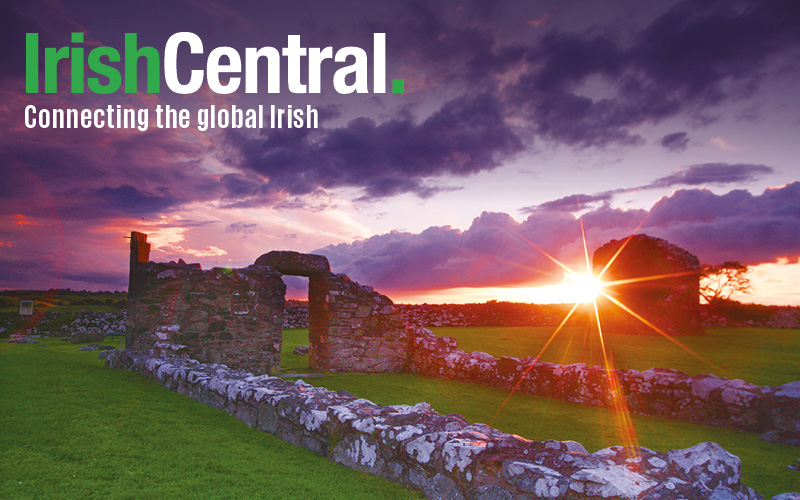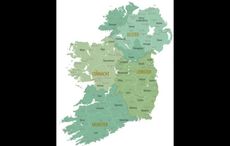I was in the Honk bar again the other night. Some of the conversation along the curved bar is about the hard times at present for the venerable stock of old country pubs like this one.
The Honk is doing well because of its reputation, its proximity to Shannon Town and to a combination of other factors which include the prime fact that there is quick and efficient taxi service available.
If the great country pubs are either closing down altogether or only opening late in the evenings, one of the clinching reasons is that there are great tracts of rural Ireland where taxis are as scarce as hens' teeth.
The driving regulations have become so tight for the past year that drivers are terrified to take even one drink nowadays (which would be legal for most) in case they fail the breath test and lose their driving licenses for two years.
That is a savage penalty for any of us. You need a car in the country. You need it for work and you need it for play. The nearest town or village is usually beyond walking distance.
It is entirely proper that the drunk driving laws have been tightened, but one consequence of that has been the sharply increased mortality rate for the great old pubs.
They had already been hard hit by the recession and by the four or five year old smoking ban. When the random testing of drivers was introduced it was the last straw for many of them.
Before then the Gardai (police) had to have some reason to suspect a driver had been drinking before they would operate the breath test. Now they have the right to test all and sundry at any time. And they do it all the time.
There are true horror stories of drivers who left their cars at the pub, took taxis home like responsible citizens and then were still over the limit when driving to work the following morning. And now they are suspended.
I've said it here before that there are occasions when two rights do indeed create a wrong.
It is right that the drunk driving regulations have been tightened. It is right that non-smokers should not have to suffer the consequences of smokers sitting on the next stool.
But in my view it is extremely damaging to the rural Irish community that the real country pubs, which served their people as community centers rather than mere inns, are being driven to the point of extinction. We are nearly there already.
The pubs which are being least damaged are the big plastic ones in the towns and cities, the ones with night clubs attached, the ones that serve urban youth and have no stool for rural age. It is very sad indeed.
The recession is creating many victims. It might seem that the closure of a few old pubs is scarcely worth mentioning against a backdrop of rising unemployment and cruel economic indices on all sides.
But it is an important matter. There is a clear government intent over the last decade to centralize development in larger towns where the residents can be more cheaply serviced.
Downstream of that is the fact that the more remote rural areas will be denuded of the best and purest people on the island. It is happening already.
The accelerating closures of the pubs where they celebrated the great days of their lives -- and the saddest ones -- and where they bought and sold, and where they made their matches and told their tales is the closure of the theatres of their lives.
Every countryman will confirm to you that a drink at home is not worth a curse. You don't go to the pub just for the drink.
The point is hammered home to me in the Honk. The man on my left elbow tells me with feeling of being in Connemara earlier in the day for the funeral of a drowning victim from a Galway Bay accident.
The veteran was from Carna, a noted sean nos (traditional Gaelic) singer and musician. He was drowned from one of the fabled old Galway hookers (wide beamed old work boats). His brother was rescued.
The funeral was in the Gaeltacht area of Carna. From an overflowing chapel of grief to a high graveyard overlooking Mweenish Island, Connemara stopped in its tracks.
There was the raw grief of the sean nos singing threaded right through the Mass. And at the graveside the surviving brother, also a noted musician, sang a sean nos lament for his brother.
It was so poignant, so powerful, so raw yet so pure, that the hair stood up on the back of my friend's neck. He was still visibly moved, tears in his eyes, when he told me the story.
And the man on my right elbow, who is in the courier business, not having heard the earlier story, tells me five minutes later about two days of his working life earlier in the week. He had to deliver a package to a town called Piddle Hinton in England.
He went over on the ferry and drove down through Dorset to Piddle Hinton, where he would stay the night. The affluent place is of course called simply Piddle.
He walked by the banks of the Piddle River and made sure to have a drink or two that evening in the Piddle Inn. The home brew was, of course, called Piddle and (said this Guinness drinker) it tasted that way too!
The astute barman-proprietor presented him with a bottle when he was leaving. The label declared: "Piddle In a Bottle"!
My friend says that he will never open it but he has clear proof now that such a place does exist on the banks of the Piddle River.
Just two stories, from the sublime to the ridiculous, from one hour in one of the great rural pubs that are melting away these falling days like snow from the ditches.
And where will we hear our own stories if ever the day comes when there are none of them left? Long may that be delayed.




Comments